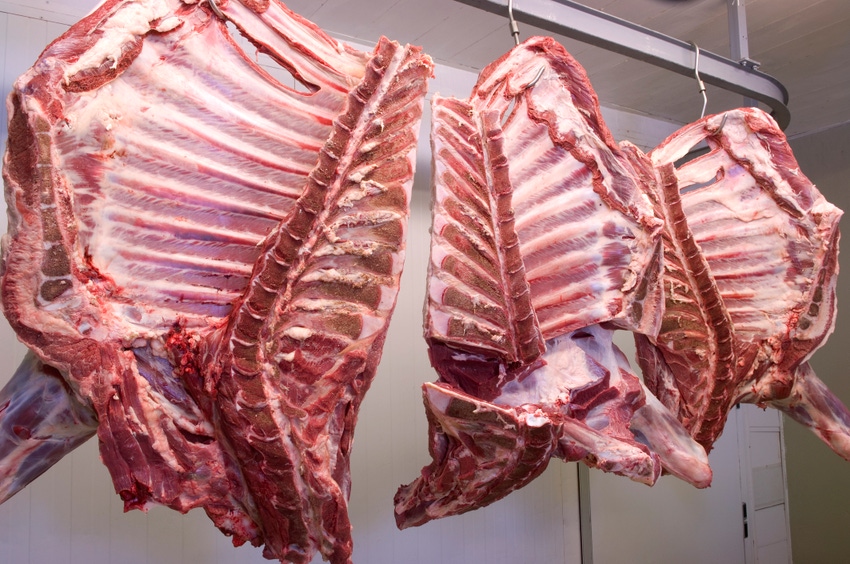Large declines seen in beef, hog slaughter
Weekly cattle slaughter declines nearly 30%, and hog slaughter declines nearly 20% since March.
April 28, 2020

As more meat plants are added to the list of closures, the Livestock Marketing Information Center (LMIC) reported that since the last week of March, weekly cattle slaughter has declined 29.5%, or about 156,000 head, in just two weeks. Since the third week of March, hog slaughter has declined 17.0%, or about 385,000 head, in three weeks.
“Slaughter plant closures due to COVID-19 cases in plant workers are causing major disruptions in processing capacity,” LMIC said. “While there are reports of more plants closing, there are indications that some plants are slowly coming back on line.”
According to LMIC, on average, weekly cattle slaughter for the first quarter 2020 was 4.6% above the prior year's levels, at about an average of 634,000 head slaughtered each week. For the last week of March, cattle slaughter was nearly 685,000 head, up 10.7% from the prior year and the highest weekly slaughter level since the last week of June 2011. Since that peak level, however, LMIC said weekly slaughter declined precipitously by 7.8% and 16.2% for the first two weeks of April, respectively, to 631.3 and 528.8 million head. Slaughter for the weeks of April 18 and April 25 are estimated at 502,000 and 469,000 head, respectively, which are levels similar to those seen during a holiday week.
Closures of beef plants in Greeley, Colo.; Tama, Iowa, and Souderton, Pa., during the first part of April have contributed to the decreased slaughter numbers, LMIC said. All three plants have reopened but still face challenges. JBS USA announced April 26 that it was temporarily closing its Green Bay, Wis., beef production facility, which processes 2,000 head per day.
“The ramp-up in slaughter at the end of March helped fill the surge in consumer demand at retail stores, but a sharp decline in foodservice demand and looming threats of further plant closures continues to create turmoil in the cattle market,” it said.
On the hog sector side, LMIC relayed that weekly hog slaughter through the first quarter of 2020 was tracking 6.1-11.8% above year-ago levels with an average weekly slaughter of about 2.6 million head. For the last two weeks of March, weekly hog slaughter was 11.8% and 9.9% higher than the same week in 2019, respectively, with each week tallying nearly 2.8 million head slaughtered. Those are levels typically seen during the fourth quarter of the year. LMIC noted that even the first week of April was 4.4% higher than the prior year's level, at 2.6 million head slaughtered, but this was 7.4% below the previous week. For the week of April 11, 2.4 million head were slaughtered, flat with the prior year and 7.0% below the previous week. For the weeks of April 18 and April 25, slaughter is estimated to be just over 2.2 million and 2.0 million head, respectively, which would be a 6.2% and 10.8% drop each week.
LMIC noted that the decline in hog slaughter during the first three weeks of April was likely due to plant closures in Columbus Junction, Iowa; Sioux City, S.D., and Cudahy, Wis. While the Columbus Junction plant reportedly reopened on April 21, closures in Worthington, Minn.; Waterloo, Iowa, and Rochelle, Ill., occurred that same week.
“The large March slaughter filled the surge in retail consumer purchases and likely provided a buffer before the plant closures that occurred in April. This allowed the industry to adjust hog shipments for processing, further mitigating any supply chain disruptions for the time being,” LMIC said.
You May Also Like


.png?width=300&auto=webp&quality=80&disable=upscale)
